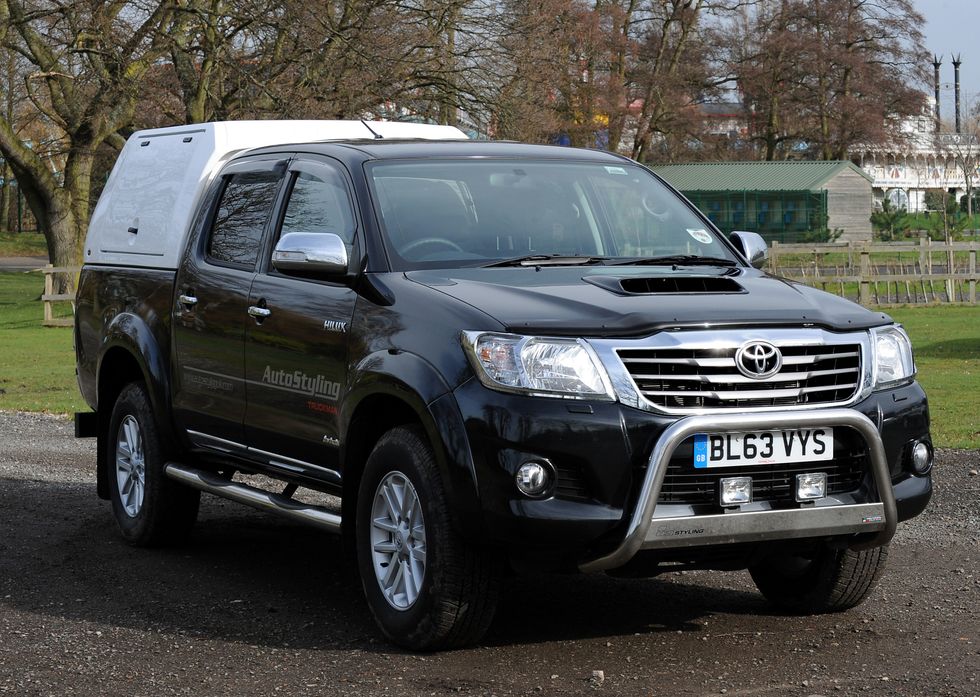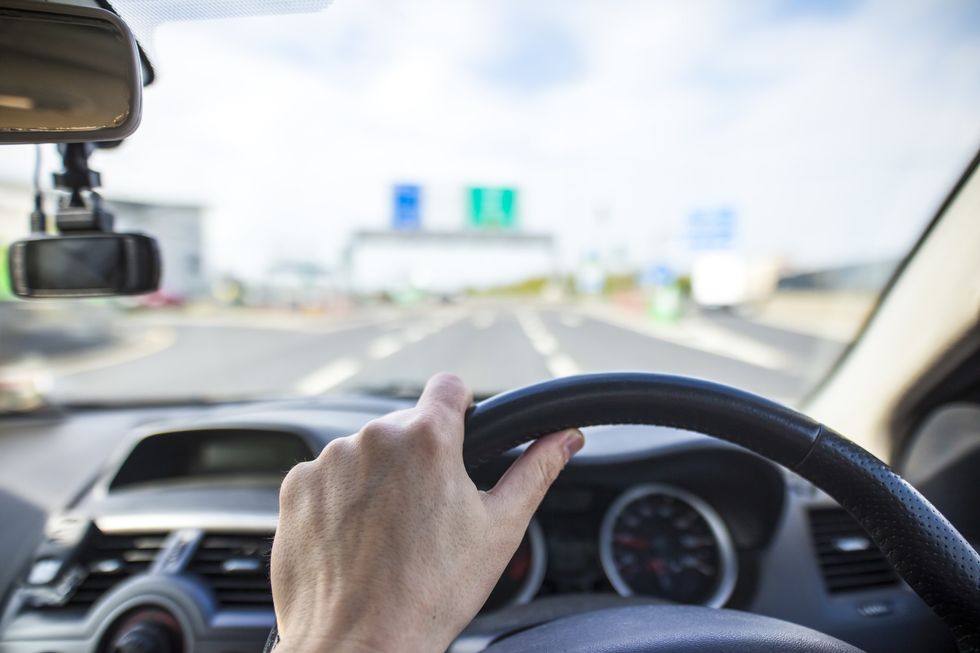Hemma Visavadia
Guest Reporter
Owners of double cab pick-up trucks can avoid a massive tax hike by acting before the April 2025 deadline, tax experts have warned.
On April 6, 2025, these popular vehicles will be reclassified as cars rather than commercial vehicles for tax purposes with a payload of one tonne or more, following the Autumn Budget unveiled by Chancellor Rachel Reeves.
However, experts have pointed to a loophole for drivers who complete their purchase before April 5, 2025, allowing them to retain the current, more favourable tax treatment until 2029.
Now tax specialists have warned the difference in costs could be substantial, with some drivers potentially facing more than five times their current tax burden under the new rules.
Do you have a story you'd like to share? Get in touch by emailing [email protected]

Under current rules, double cab pick-ups are treated as vans, benefiting from lower Benefit-in-Kind (BiK) rates and better capital allowance treatment.
But, this will change dramatically next spring, as the new system will calculate BiK as a percentage of the vehicle's retail price, based on CO2 emissions.
Most double cab pick-ups have high emissions, meaning they will attract the highest tax band of 37 per cent. Commercial vehicles currently receive 100 per cent tax relief against business profits in the year of purchase. After the changes, this could drop to as low as six per cent per year.
However, a taxable benefit will apply if the vehicle is available for any private use, no matter how minimal, according to Thompson Jenner. The only exception is that VAT treatment will remain unchanged for these vehicles.
The stark difference in tax costs can be illustrated through a typical higher-rate taxpayer. For example, under current van rates, the total BiK charge is £4,717, comprising a van rate of £3,960 and a fuel rate of £757. This results in an annual tax cost of £1,887 for a higher-rate taxpayer paying 40 per cent, the accountancy firm explained.
After April 2025, using a £40,000 vehicle as an example, the same driver would face a car BIK rate of £14,800 plus a fuel benefit of £10,286. This creates a total assessable income of £25,086.
The resulting tax bill would be £10,034 - more than five times the current amount, the accountancy firm warned.
Tax experts have also advised careful consideration of finance options, particularly for leases extending beyond April 2029.
According to Magee Gammon Chartered Accountants, single cab pick-ups are expected to remain classified as commercial vehicles.
The transitional benefit arrangements apply specifically to vehicles ordered before the April 2025 deadline, even if delivery takes place after this date.
However, vehicle owners should be mindful that second-hand values may fall considerably as many vehicles hit the market simultaneously. To avoid BiK charges completely, businesses could implement strict private use restrictions.
This would require leaving the vehicle at the office, keeping keys on premises, and having insurance documentation confirming no private use. However, experts warn this may be too challenging for most cases to implement effectively.
LATEST DEVELOPMENTS:

The Budget documents explained: "The existing capital allowances treatment will apply to those who purchase DCPUs before April 2025.
"Transitional benefit in kind arrangements will apply for employers that have purchased, leased, or ordered a DCPU before April 6, 2025. They will be able to use the previous treatment, until the earlier of disposal, lease expiry, or April 5, 2029."
Find Out More...
On April 6, 2025, these popular vehicles will be reclassified as cars rather than commercial vehicles for tax purposes with a payload of one tonne or more, following the Autumn Budget unveiled by Chancellor Rachel Reeves.
However, experts have pointed to a loophole for drivers who complete their purchase before April 5, 2025, allowing them to retain the current, more favourable tax treatment until 2029.
Now tax specialists have warned the difference in costs could be substantial, with some drivers potentially facing more than five times their current tax burden under the new rules.
Do you have a story you'd like to share? Get in touch by emailing [email protected]

Under current rules, double cab pick-ups are treated as vans, benefiting from lower Benefit-in-Kind (BiK) rates and better capital allowance treatment.
But, this will change dramatically next spring, as the new system will calculate BiK as a percentage of the vehicle's retail price, based on CO2 emissions.
Most double cab pick-ups have high emissions, meaning they will attract the highest tax band of 37 per cent. Commercial vehicles currently receive 100 per cent tax relief against business profits in the year of purchase. After the changes, this could drop to as low as six per cent per year.
However, a taxable benefit will apply if the vehicle is available for any private use, no matter how minimal, according to Thompson Jenner. The only exception is that VAT treatment will remain unchanged for these vehicles.
The stark difference in tax costs can be illustrated through a typical higher-rate taxpayer. For example, under current van rates, the total BiK charge is £4,717, comprising a van rate of £3,960 and a fuel rate of £757. This results in an annual tax cost of £1,887 for a higher-rate taxpayer paying 40 per cent, the accountancy firm explained.
After April 2025, using a £40,000 vehicle as an example, the same driver would face a car BIK rate of £14,800 plus a fuel benefit of £10,286. This creates a total assessable income of £25,086.
The resulting tax bill would be £10,034 - more than five times the current amount, the accountancy firm warned.
Tax experts have also advised careful consideration of finance options, particularly for leases extending beyond April 2029.
According to Magee Gammon Chartered Accountants, single cab pick-ups are expected to remain classified as commercial vehicles.
The transitional benefit arrangements apply specifically to vehicles ordered before the April 2025 deadline, even if delivery takes place after this date.
However, vehicle owners should be mindful that second-hand values may fall considerably as many vehicles hit the market simultaneously. To avoid BiK charges completely, businesses could implement strict private use restrictions.
This would require leaving the vehicle at the office, keeping keys on premises, and having insurance documentation confirming no private use. However, experts warn this may be too challenging for most cases to implement effectively.
LATEST DEVELOPMENTS:
- E-bike law changes move one step closer amid urgency to regulate 'ferocious' fire hazards
- Popular tourist town could see parking costs rise for first time in four years amid impact of inflation
- Roads across Wales 'under review' as drivers demand end to 20mph speed limits - 'The public has no faith!'

The Budget documents explained: "The existing capital allowances treatment will apply to those who purchase DCPUs before April 2025.
"Transitional benefit in kind arrangements will apply for employers that have purchased, leased, or ordered a DCPU before April 6, 2025. They will be able to use the previous treatment, until the earlier of disposal, lease expiry, or April 5, 2029."
Find Out More...